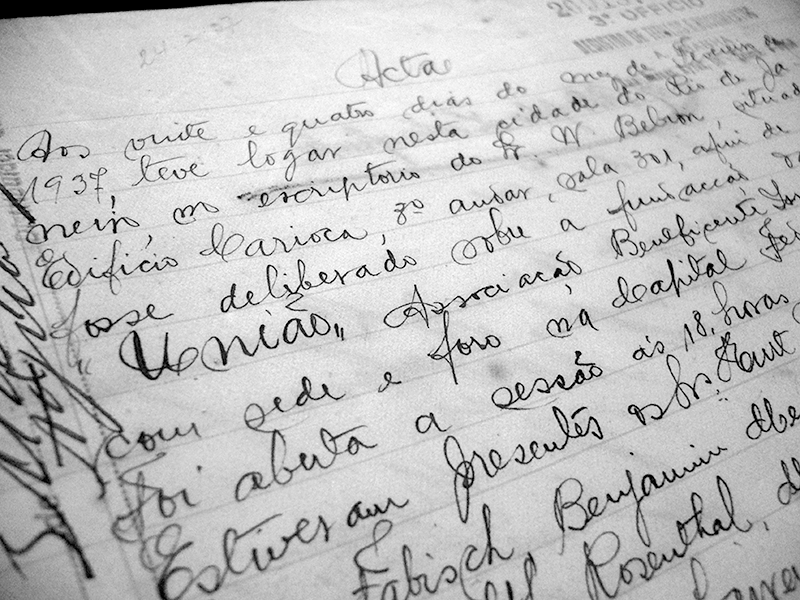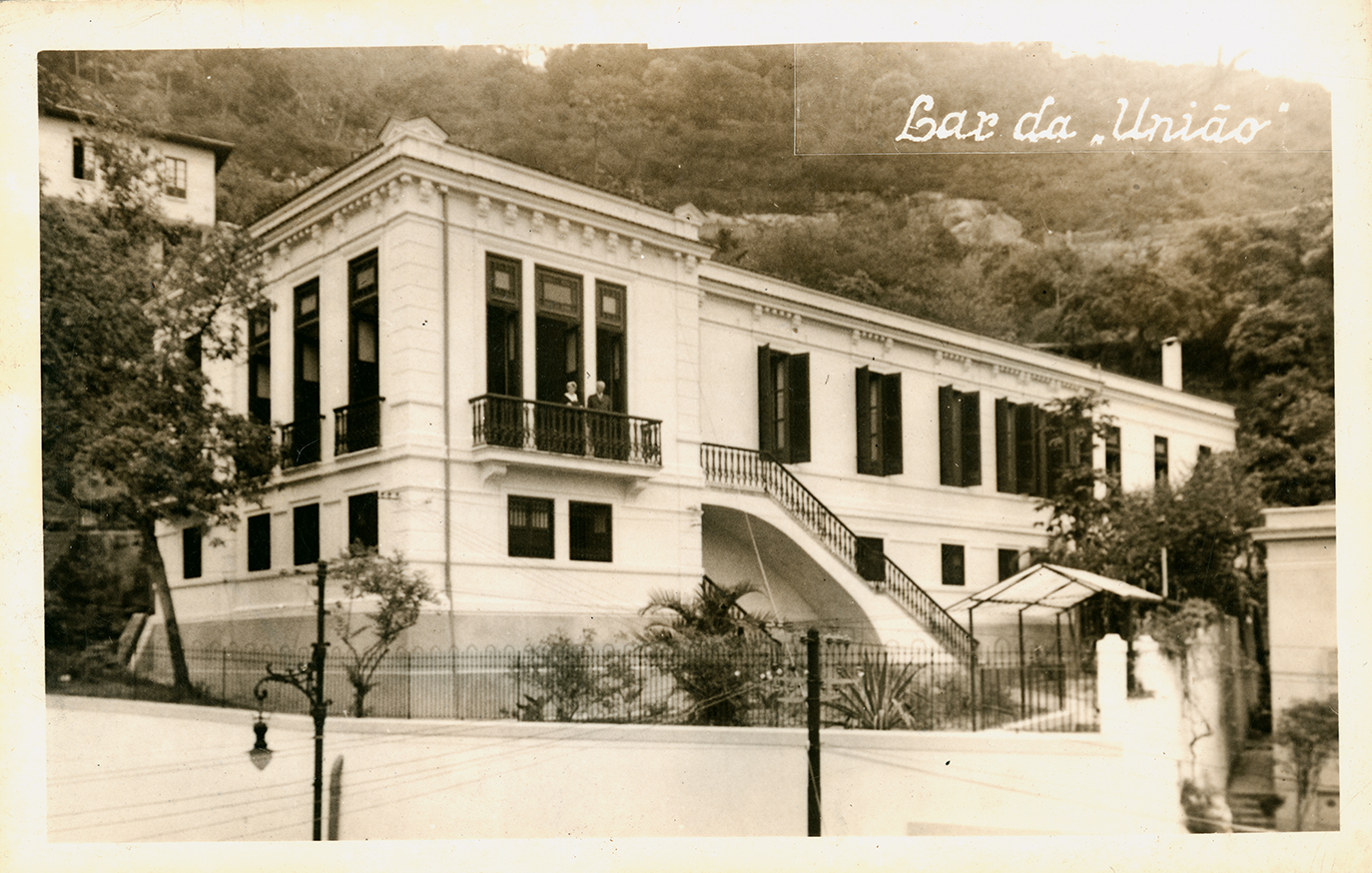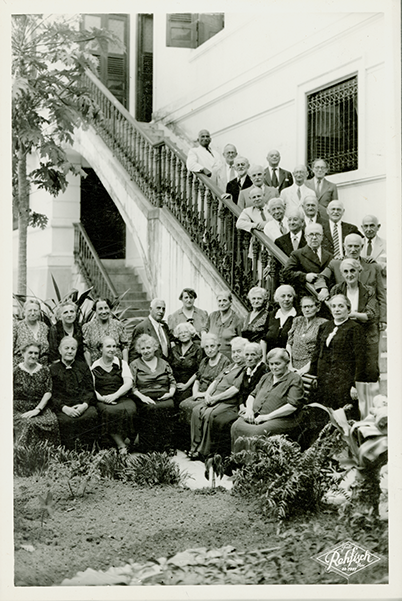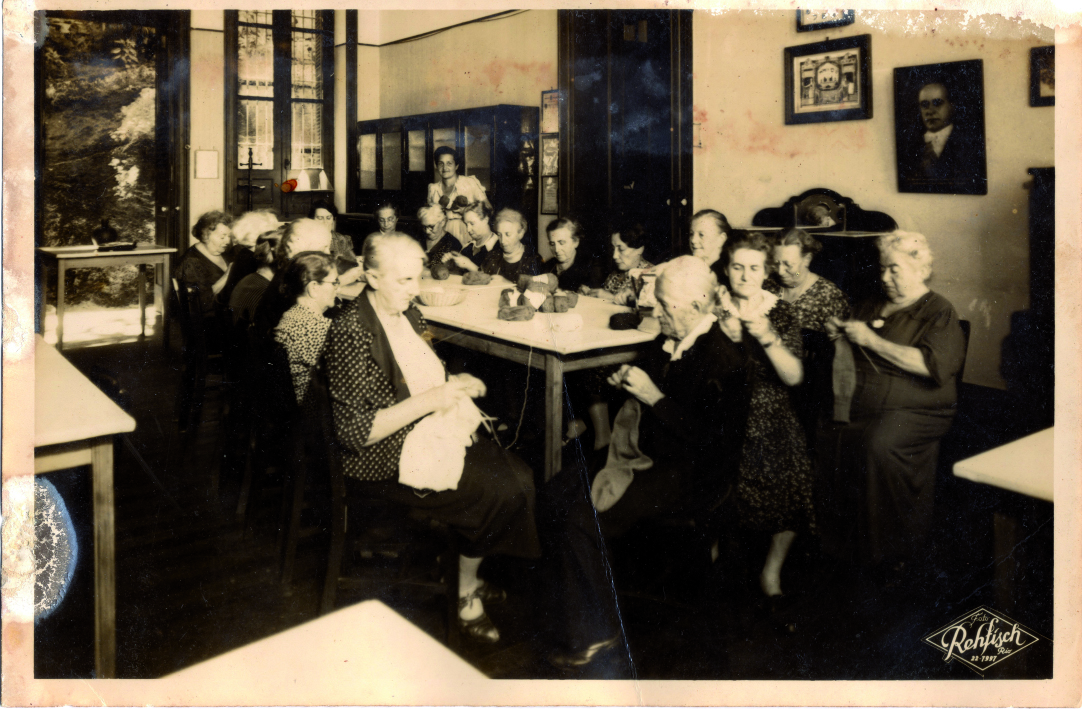The first moments of German Jewish immigrants in Rio de Janeiro
The history of the União Associação Beneficente Israelita (Jewish Beneficent Society) goes back before its foundation in 1937 and has its origins in the mid 1930’s, with the arrival of the first Jewish refugees from Germany to Rio de Janeiro and São Paulo. They are assisted and accommodated by a group of activists of different origins, especially from Eastern Europe, already domiciled in Brazil, in the old headquarter of the Relief Society, at Joaquim Palhares street, in the former Jewish neighbourhood Praça XI. Over 100 refugees are housed there, while others are put up in inns and private homes.
In 1933, a small group of German Jewish immigrants gets together into a club they name “Centro 33” in the Marques de Paraná street, to exchange experience and information, but also to revive cultural e religious habits of the lost homeland. In the year to follow they organize by their own means the first religious services for the Rosh Hashanah and Yom Kipur.
The need for governmental recognition for the assistance work for the immigrants – to assure their subsistence in the new country as well provide them with legal advice due to the political issues in Brazil and in Germany –, endorsed the foundation of the União on February 24th, 1937. Many refugees had an irregular status in Brazil and had so far a tourist visa. In December 1937, as the situation of the irregular status of tourists urged, 40 people a day required legal advice at União. In August 1938, when the possibility of officialising their stay, there were 50 to 70 advice seeking people per day.
In 1938 and 1939, with the change in the immigrants’ profile – initially young men who managed to escape Nazi Germany, then however their recently arrived parents and grandparents – the União needs to make new arrangements and creates and elderly home, which is still today the main task of the institution.



